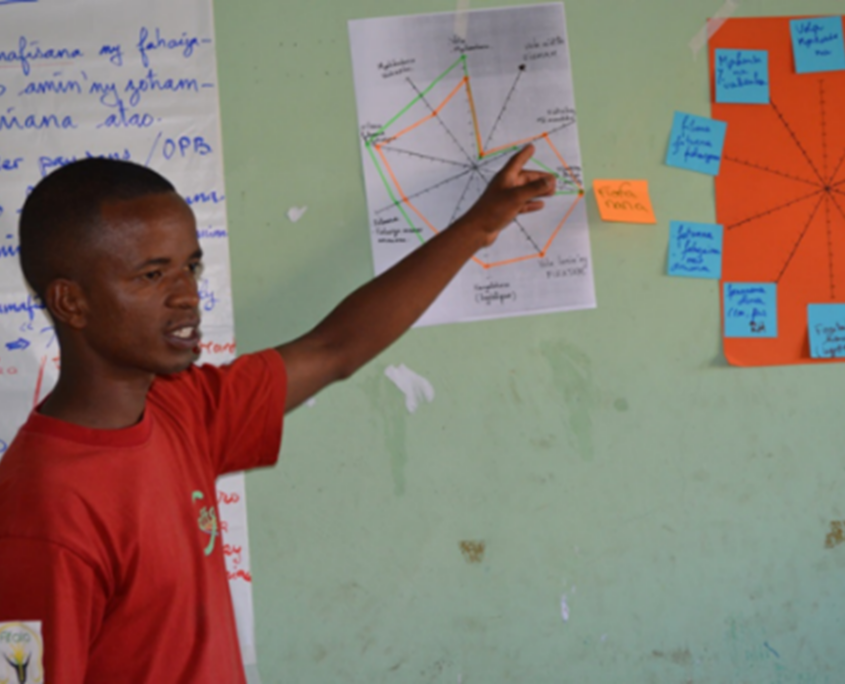In Madagascar, Fert supports Fifata and its partner organizations in the development of services to farmers. In order to ensure services are provided in the long term, farmers organizations (FOs) are supported in their reflections on the economic viability of the services.
Although FOs are generally making rapid progress in the technical mastery of their services, the long-term financing of services is an important and delicate issue. In 2020, Fifata’s Farmers’ Leaders Training (FLT) unit capitalised on several years of practice in supporting local and regional FOs on economic viability.
Several lessons have been learned from these experiences
Concrete results: this work has enabled several FOs to be supported in their strategic reflections.
The Fimpiama regional value chain union
This union, located in the High Matsiatra region, had solicited FLP’s support in 2016 for the development of its strategy. In 2020, this work was renewed by analysing the costs/benefits to the members of each union service (vaccination of chickens, chick production, support for young farmers, etc.) and by deciding on the resources to be allocated to each service: a step towards better economic viability!
The Fifatam regional FO
Located in the Amoron’i Mania region, this FO was supported in the reading of its history (the FO yesterday), then through a schema spider the usefulness of each service to the members and the related costs were analysed. These sessions gave elements to chairmens and technicians to discuss and organise the next steps. For Fifatam, it led concretely to a review of the sale prices of vaccines and the distribution of technicians’ working time.





